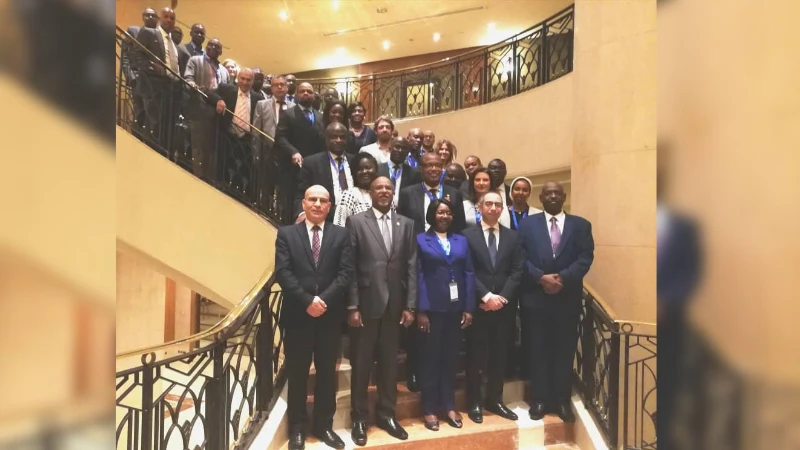Tanzania's financial inclusion index reaches new high amid digital surge

Tanzania's efforts to expand access to financial services are yielding significant results, with the Tanzania Financial Inclusion Index (Tan Fix) reaching a new high of 0.81 in December 2024.
Bank of Tanzania (BoT) Dar es Salaam officeAccording to the financial stability report 2024 published recently by the Bank of Tanzania (BoT), this marks a notable increase from 0.79 recorded in the corresponding period of 2023, signaling increased access to crucial financial services for Tanzanians.
The impressive growth in financial inclusion is primarily driven by the widespread adoption of digital platforms and an expanding physical footprint of financial services.
The rise in mobile money services, coupled with an increase in bank agents, microfinance service access points, and point-of-sale locations, has been instrumental in bringing more people into the formal financial system.
Furthermore, the formalization of community microfinance groups, alongside ongoing innovations and a supportive legal and regulatory environment, have contributed significantly to this positive trend.
Financial services users are increasingly leveraging accessible channels, with mobile money and bank agents leading the way. The total number of financial access points across the country saw a 2.0 percent increase from the previous quarter, reaching an impressive 1.7 million.
This surge is largely attributed to the expanded reach of mobile money agents, microfinance institutions, and insurance access points. Conducive legal and regulatory frameworks continue to fuel this expansion, ensuring a stable environment for growth.
Savings also witnessed robust growth during the period under review. The number of savings accounts expanded by 3.9 percent, reaching 29.5 million accounts.
Correspondingly, the total amount held in these accounts grew by 2.0 percent, now standing at 7,708.6bn/-. This encouraging trend is a testament to increased financial awareness, successful literacy programs, and the widespread adoption of digital platforms offering innovative saving products.
While celebrating these achievements, the Bank of Tanzania (BoT) remains committed to strengthening financial consumer protection to maintain public trust and stability within the financial system. The Bank has actively enhanced its complaint resolution mechanisms. Despite the banking sub-sector, particularly credit facilities, generating the most complaints, the BoT has implemented proactive measures, including public awareness campaigns and decisive regulatory actions against unlicensed digital lenders.
To further streamline dispute resolution, the Bank is in the final stages of deploying a new Financial Complaints Resolution System. This innovative system will integrate USSD technology and AI-driven support, promising a more efficient and accessible avenue for consumers to address their concerns. Additionally, draft guidelines for effective complaints handling are being developed to ensure a consistent approach across the entire financial industry.
However, the financial system is not without its challenges. In 2024, risks primarily stemmed from improper loan recovery procedures and abusive practices by unlicensed digital and micro lenders. These issues have led to consumer distress, increased default rates, and posed reputational risks for the broader financial sector, potentially undermining trust and increasing borrower vulnerability.
In response, the BoT continues to bolster market conduct surveillance through both onsite and offsite monitoring. It is also actively collaborating with other regulatory authorities to take firm action against non-compliant entities.
Ongoing public awareness campaigns are being conducted to educate consumers and encourage the use of formal, regulated financial services, thereby reinforcing consumer protection and promoting a more stable and trustworthy financial ecosystem.
Top Headlines
© 2025 IPPMEDIA.COM. ALL RIGHTS RESERVED

























